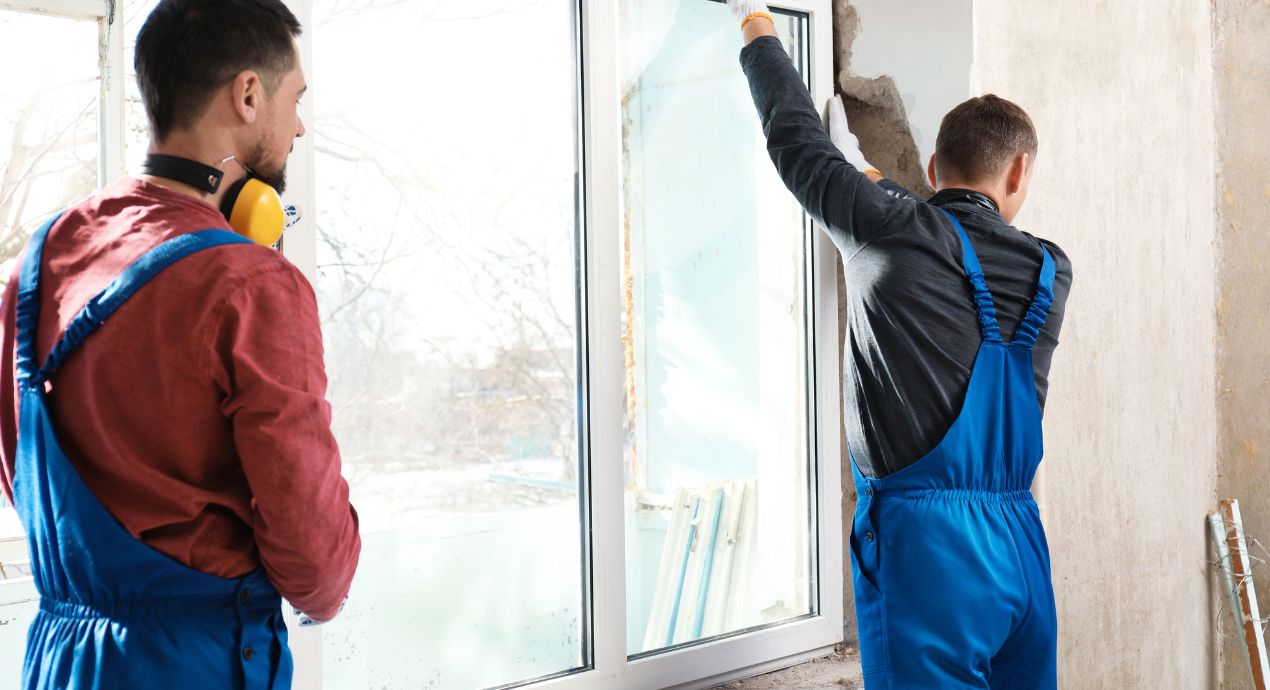
Contemplating coverage?
Subscribe to receive our emails & get
$200 off!
Have questions?
Call us: (833) 544-8273


Written By Ellie Brooks
Cold temperatures will be here soon, and energy prices are up. Homeowners across the nation are eager for ways to make their homes more energy efficient and less prone to cold drafts. The best way to resolve a drafty window is to replace it entirely, but this is an expensive undertaking—especially with inflation and ongoing supply chain issues.
A possible alternative is applying insulating plastic for windows—but does it work? According to Energy.gov, plastic window insulation can save you 10%–30% on heating and cooling costs. While plastic window sheeting may have some downsides, it is reasonably effective as a wintertime insulator. Here we’ll cover the pros and cons of plastic insulation for windows and explain how to install them.
There’s a reason Liberty Home Guard was rated the #1 Home Warranty
Service by U.S. News and World Report for 2021, 2022, 2023, and 2024. Check out our services.
Even a thin sheet of plastic is remarkably good at trapping heat. Leveraging the properties of plastic for home insulation purposes yields a few important benefits.
Plastic insulation is easy to install. You likely have the tools required. You can purchase an insulation kit online or in a local hardware store. Defer to the installation instructions that come with the kit you purchase, but here are some general directions for reference.
You may also need a stepstool or ladder for high windows.
1. First clean the interior surface of the window with glass cleaner and a cloth. Use the alcohol and another microfiber cloth to clean the framing around the window as well.
2. Measure the length and width of your window from the outside edge of one frame to the other.
3. Cut out a segment of plastic film that is an inch or two wider and longer than the window measurements you just recorded.
4. Apply double-sided tape to the interior surface of your window frame.
5. Affix the film to the tape. Try to keep it as taut as possible, but you’ll have another opportunity to smooth out any ripples.
6. Turn on the hair dryer and blow the heat evenly across the film. Move from edge to edge and slowly work your way down from top to bottom. This will smooth out the film for a taut finish.
7. Use the boxcutter to carefully trim excess film around the edges. You don’t want to press the knife into your window frame or wall.
Note that if you have blinds, this process can seal off your blind wand or drawcord. You can remedy this by cutting a small hole in the film near the top of the window to feed the wand and cords through. You should remove the wand before applying the film, then reattach it after completing the installation. The cords you can fish out with a hook or pliers after you have applied the plastic film.
If you have newer windows or double-paned windows filled with an insulating gas such as argon, you probably don’t need to go through the trouble of applying window film. Plastic insulation is better suited to homeowners who are looking for an easy, affordable, temporary fix for drafty windows.
If you’re unsure if your windows have small gaps that could allow heat to escape, perform a visual inspection. Look for openings along the framing and sashes. Check for peeling paint, condensation, mildew, insects, and soot or grime. Confirm that the windows don’t rattle and that you can’t detect outdoor odors inside your home. These are all signs that your windows are not sealed properly.
Energystar.gov also recommends using a paper or smoke test to determine if you have drafty windows. Hold a thin piece of paper, feather, or smoking piece of incense close to your window’s framing. If you detect movement, you’ve found an air current and should consider applying plastic insulation when cold weather arrives.
Plastic insulation is great in a pinch, but there are some drawbacks to consider. Many homeowners don’t find it particularly attractive, and you might be a little put off by seeing even properly applied plastic film whenever you glance out the window.
Depending on your window treatments, plastic sheeting can make it difficult to open or close your blinds. You also won’t be able to open your windows on that unseasonably warm day in early spring.
Plastic film is also delicate, and you or your children or pets could easily tear a hole in it by accident.
Though not for everyone, plastic window sheeting can be a cost-effective way to realize some energy savings and put less strain on your heating appliances. To further support your home’s equipment, consider a home warranty from Liberty Home Guard. Our standard plans cover home heating and cooling systems, helping you affordably maintain and repair your equipment when necessary. Use our website for a free quote or call (866)-432-1283.
Stay Ahead of Potential
Home Mishaps!
Subscribe to our Liberty Home Guard Newsletter and gain access to exclusive content that ensures your peace of mind.